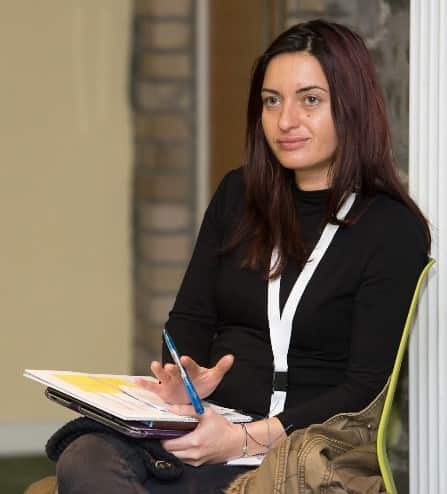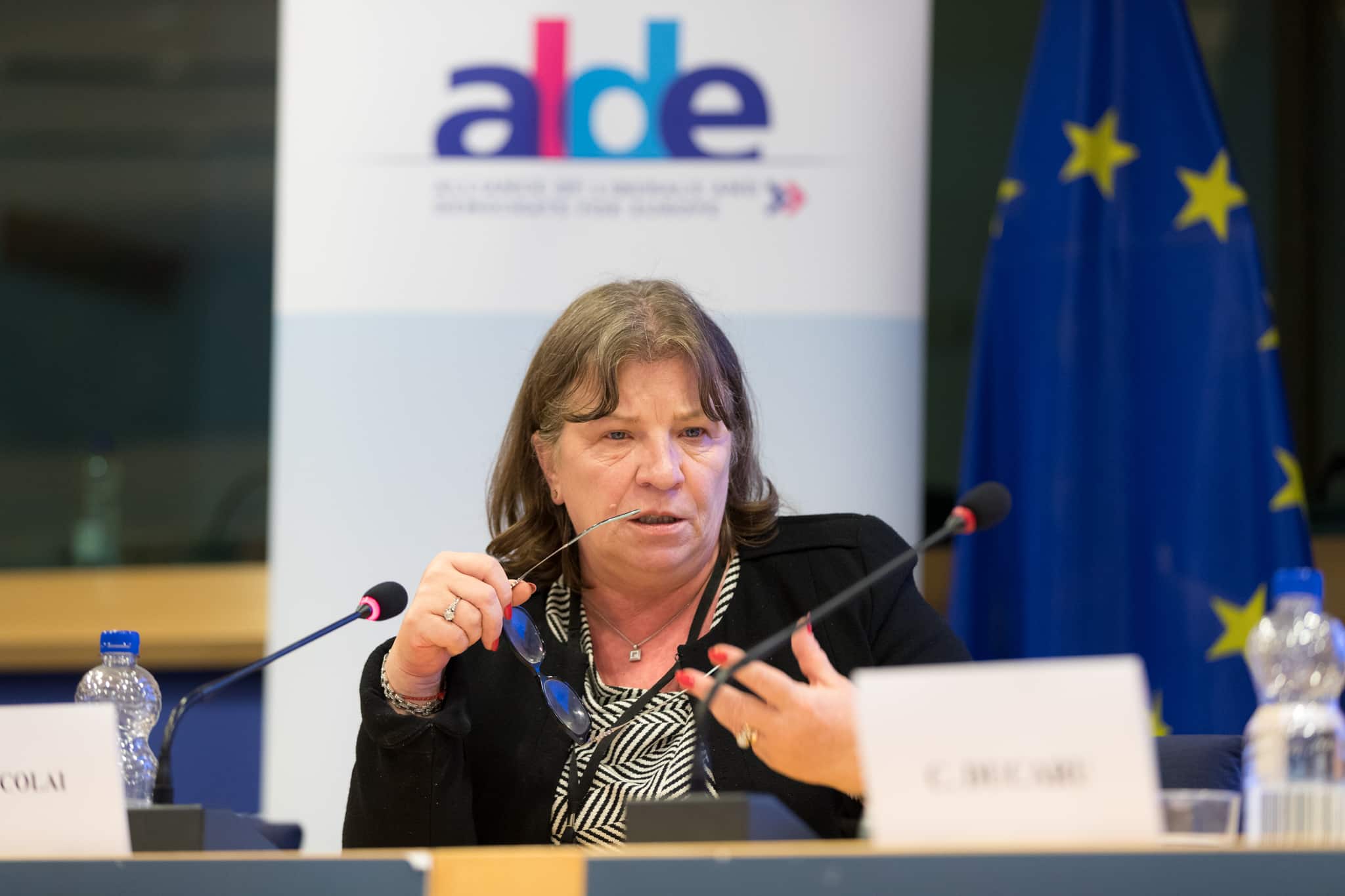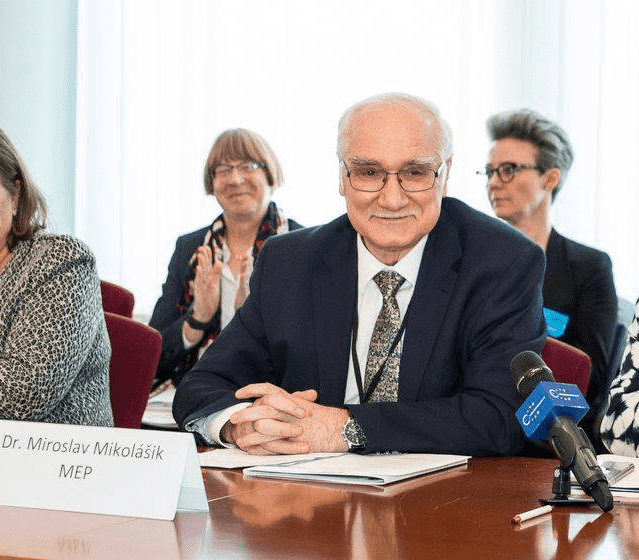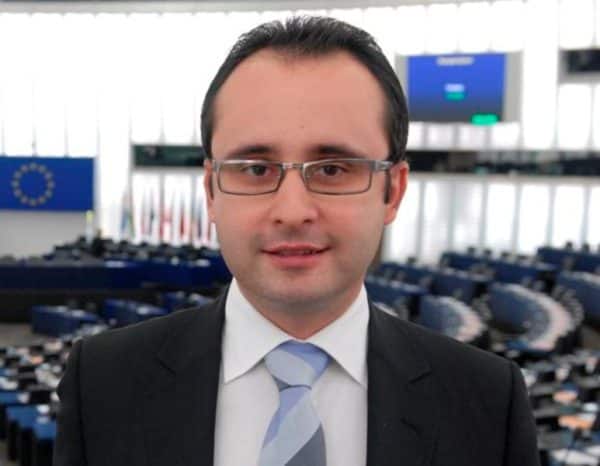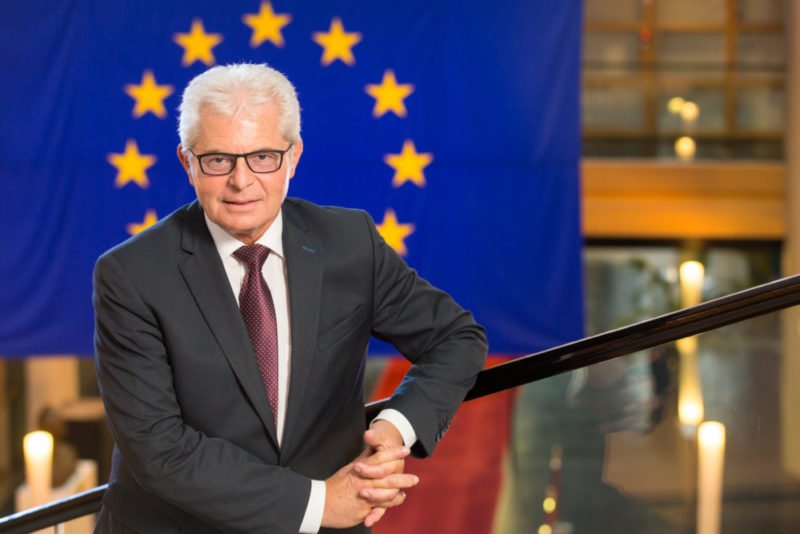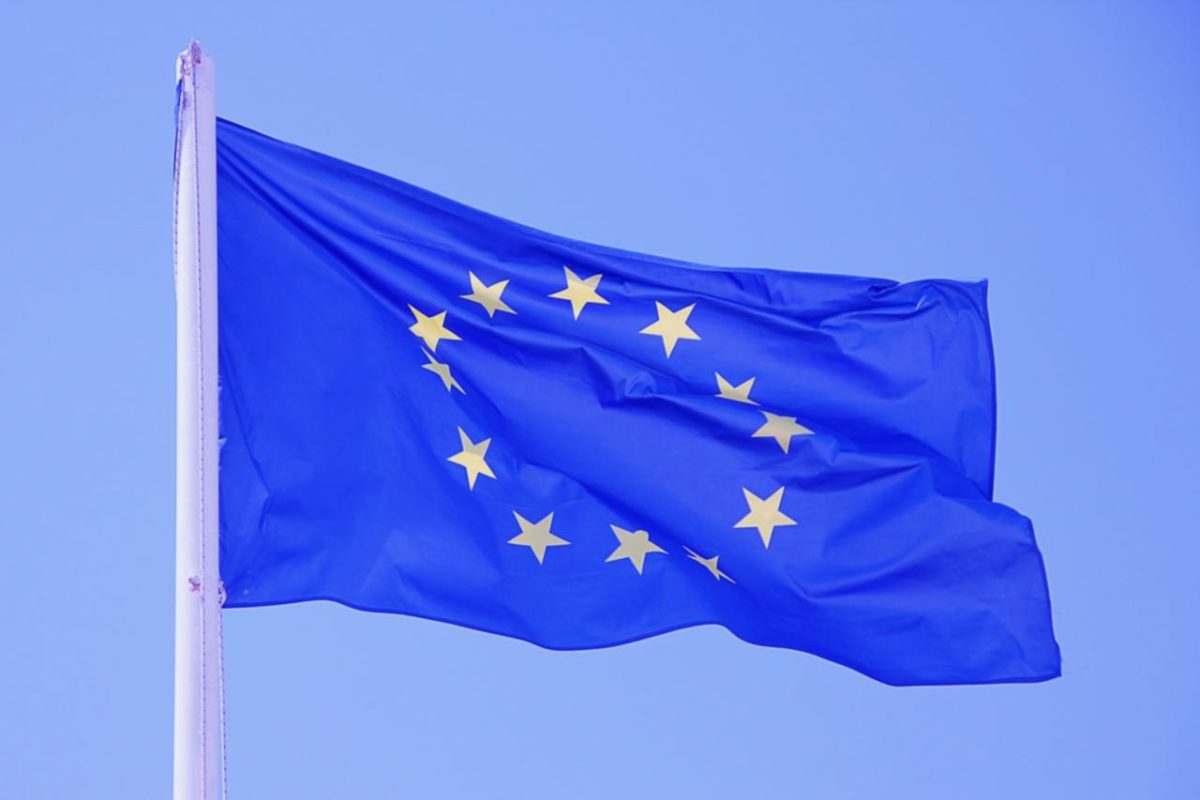
For this week’s EHC Now! we sit down with EHC President Declan Noone to discuss the Round Table event on Registries and Clinical Outcomes.
On 18 February, the European Haemophilia Consortium (EHC) held a Round Table of Stakeholders at the European Parliament in Brussels on “haemophilia registries and clinical outcomes.”
Laura Savini (LS): Declan, first and foremost, can you explain for our readers who may not be familiar with this, the concept of the EHC Round Tables?
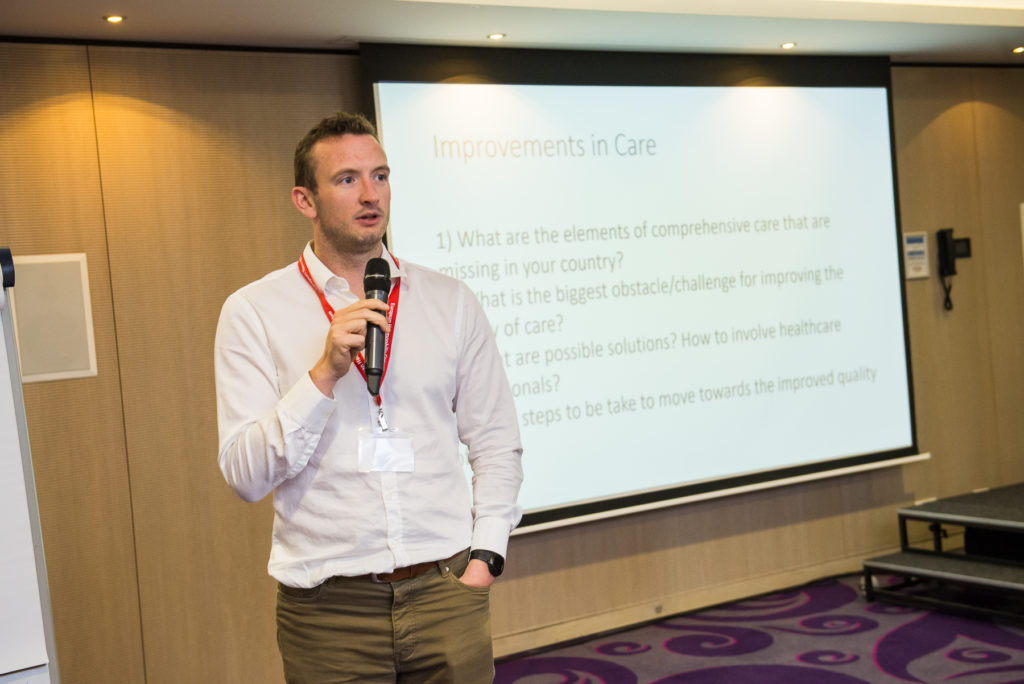 Declan Noone (DN): Certainly! The answer is really in the name. The idea is to bring together different stakeholders, that means different types of people involved in haemophilia care like doctors, patients, industry, politicians and representatives of regulatory agencies around the table to have an open conversation on a particular issue. The event usually features some presentations or guided discussions with experts to inform the public about the subject. Then the floor is open for questions and answers, and conversations with all participants.
Declan Noone (DN): Certainly! The answer is really in the name. The idea is to bring together different stakeholders, that means different types of people involved in haemophilia care like doctors, patients, industry, politicians and representatives of regulatory agencies around the table to have an open conversation on a particular issue. The event usually features some presentations or guided discussions with experts to inform the public about the subject. Then the floor is open for questions and answers, and conversations with all participants.
LS: Why do you think it is useful to hold such meetings?
DN: It is really good to bring together all parties involved in haemophilia care. When I say haemophilia, I also mean other bleeding disorders, by the way. I am just using this word for convenience. In the past, we held round tables on other rare bleeding disorders. If the event is on haemophilia, we also try to keep in mind how this issue translates to other rare bleeding disorders. As I was saying, it is good to get a multidisciplinary perspective on a particular topic so that we can work together constructively towards achieving better care for our community.
LS: That makes sense, but why holding these events in the European Parliament?
DN: The European Parliament is the only European institution that has elected representatives. Elected from the people, and to serve European citizens’ interests. As such, it is good to bring the community’s issues there, so that Members of the European Parliament (MEPs) can make informed decisions when developing laws. Our problems are indeed particular to our community, but I think that the issues we face are not so different from other patient communities. It is undoubtedly the case with the topic of yesterday’s event. We are not the only patient community dealing with registries. The benefits we get from- and difficulties we face with registries can probably be applied to other medical areas, medicinal products and even medical devices.
LS: So why do we need to discuss registries and clinical outcomes in 2020?
DN: The reason our community identified the topic of registries is that currently, the registry landscape is a bit of a mess. There are some countries with excellent registries, like France and the UK. They manage to collect relevant data, analyse it and publish articles that make a real impact in clinical practice, with inhibitor development, for example. However, in the majority of other countries, there are several levels of registries that are often not compatible. This situation does not allow us to look at all the data and further research.
LS: Ok, but these issues related to registries have been around for a while, why do we need to bring the topic to the (round) table again?
DN: We are moving into a new era of treatment, of different treatment concepts. Some are already here, like extended half-life and bispecific antibodies and others, like rebalancing agents and gene therapy, which completely change the treatment landscape, will arrive shortly (or so we believe). We want to understand the safety and efficacy profiles of all products, old and new. Still, we also don’t want to miss signals not directly related to the safety of the medicine itself. We want to gain a deeper understanding of the medicines’ method of working. We want to be able to answer questions such as: “What if there are factors that make one patient better than another for a particular treatment?” or “What if, by increasing clotting levels, we change the natural course of the condition in a way we didn’t think about?”
LS: So, what were the main takeaways from the event?
DN: The full report of the event will be published in the coming weeks, but in the meantime, here is what I took away from yesterday’s event. We need to be smarter about how we set-up registries. We need to agree on what data we collect and how we order that data in a database. We need to be able to have registries that are interoperable so that we can widen the data pool to identify those signals that allow us to improve how we deliver treatment and care. A great example of this is the registry of Czech Republic. It was integrated into the World Federation of Hemophilia (WFH) World Bleeding Disorders Registry (WBDR). They managed to add their national database into a global database. This collaborative approach is the type of thinking needed, and we should commend them for this effort.
Some of the participants pointed out that data collection will change dramatically with apps and wearable devices, like smartwatches and so on. These new technological developments can indeed open us to a huge amount of data that is not just related to bleeds and treatment regimens but also to other quality of life parameters, like exercise, ability to walk, sleep quality, etc. This is exciting as it’s a passive way for patients to provide information that can help improve their own decision making; however, we really need to plan ahead because this data will still need to go into a database and it will need to be analysed for tangible and beneficial feedback. To do this, there needs to be structure.
The issue of data privacy was also raised. As Dr Niamh O’Connell pointed out, it is really important that patients trust that their data is kept and handled with care and used appropriately. It is really very sensitive information that patients share with registries. This means that there needs to be good security in place. This led us to two more points. The first one is that none of this can be done without funding. Governments need to invest in their registries. They need to provide funds for the structure or commit to projects like the WBDR. As important though, are data managers. Rubbish in, Rubbish out. We need data managers that can input, clean and support the analysis of the data.
The second point is education. This is not limited to patients but also to clinicians and data managers. Whoever is involved in the registry needs to understand the importance of registries, and why it matters, that data is collected properly.
LS: Thank you, Declan, for the interview. So, the report will be available in a few weeks on the EHC website. When is the next Round Table and what will it be about?
DN: The next Round Table is taking place on 19 May in Brussels, and it will be on the topic of patient-clinician education. The event will be led by EHC Steering Committee member, Thomas Sannié. The event will focus on the shift of culture that moves away from a “paternalistic approach” to the current paradigm of “patients and clinicians, as partners”. To go back to what we touched upon here above, those discussions should be informed by good records, so the partnership can make decisions that work for now but also for their future. I am really looking forward to that one so keep an eye on our social media as the Save the Date go out soon!
The EHC wishes to thank MEP Ms Katalin Cseh for hosting, moderating and supporting the EHC Round Table on Registries and Clinical Outcomes. To register to the EHC mailing list to stay up-to-date with all of our events go to the mailing registration form.




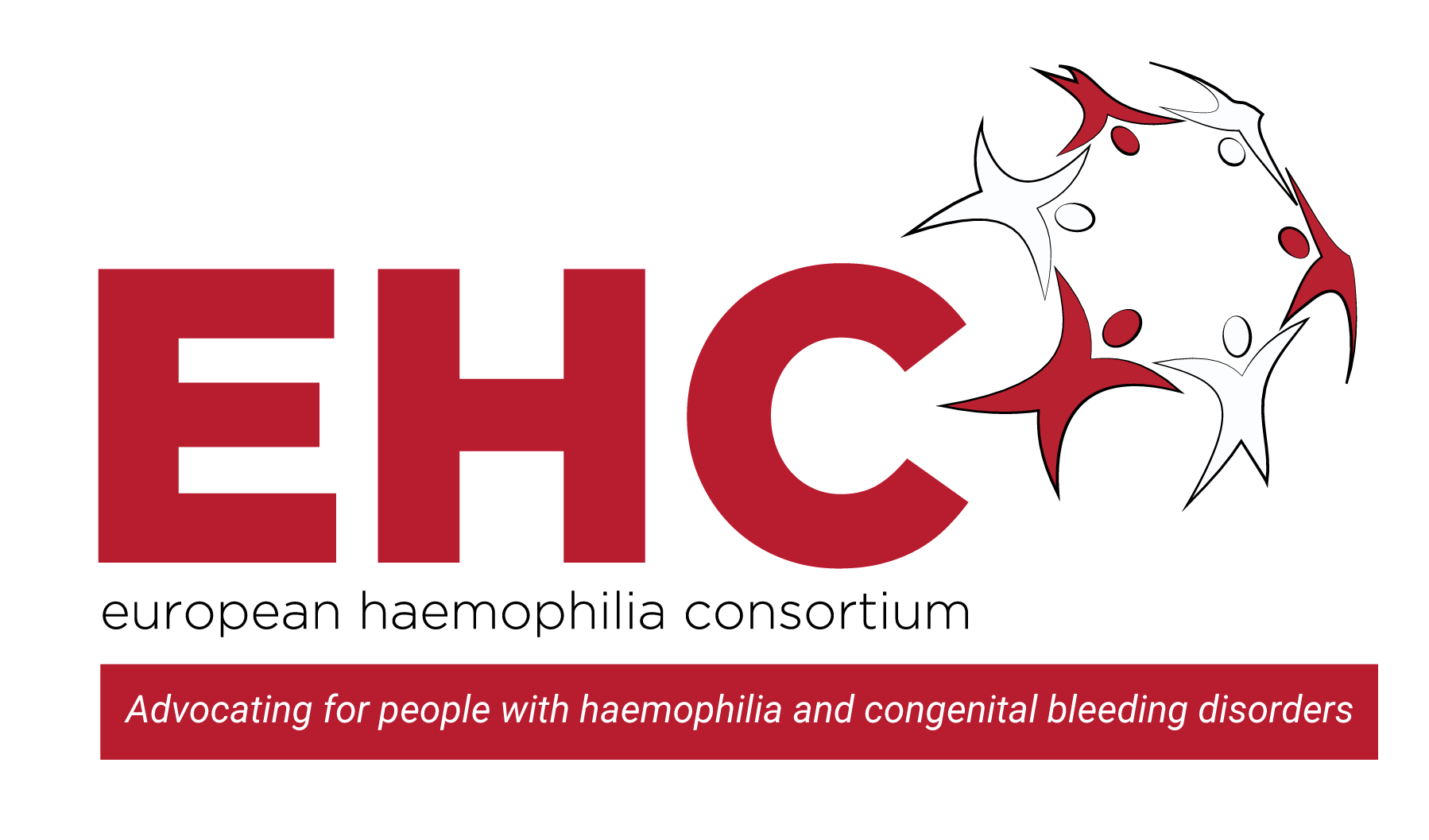
 Jim is aged 66 and has Haemophilia A with a high titer inhibitor which he developed at age 14.
Jim is aged 66 and has Haemophilia A with a high titer inhibitor which he developed at age 14. Maria Elisa Mancuso (MD, PhD) is a Haematologist and works as a Senior Haematology Consultant at the Center for Thrombosis and Haemorrhagic Diseases of IRCCS Humanitas Research Hospital in Rozzano, Milan, Italy. She is Adjunct Clinical Professor at Humanitas University. She obtained a post-degree in Clinical and Experimental Haematology and a PhD in Clinical Methodology. She is involved in clinical research and has published several original articles in peer-reviewed journals a The Lancet, Blood, Journal of Thrombosis and Haemostasis, Haematologica, Thrombosis and Haemostasis, British Journal of Haematology and Haemophilia. She is reviewer for several peer-reviewed journals and member of the Editorial Board of JTH. She is a member of several scientific societies (ISTH, WFH, ASH, EAHAD, SISET, AICE) and was a medical member of the Inhibitor Working Group of the European Hemophilia Consortium. She is co-chair of the ADVANCE Study Group. She has acted also as co-chair of the Scientific and Standardization Subcommittee of ISTH on FVIII, FIX and rare bleeding disorders. She has been involved as principal and co-investigator in several clinical trials, and she takes care of both children and adults with hemophilia and other congenital bleeding disorders with a specific scientific interest in novel therapies, prophylaxis, inhibitors, and chronic hepatitis C.
Maria Elisa Mancuso (MD, PhD) is a Haematologist and works as a Senior Haematology Consultant at the Center for Thrombosis and Haemorrhagic Diseases of IRCCS Humanitas Research Hospital in Rozzano, Milan, Italy. She is Adjunct Clinical Professor at Humanitas University. She obtained a post-degree in Clinical and Experimental Haematology and a PhD in Clinical Methodology. She is involved in clinical research and has published several original articles in peer-reviewed journals a The Lancet, Blood, Journal of Thrombosis and Haemostasis, Haematologica, Thrombosis and Haemostasis, British Journal of Haematology and Haemophilia. She is reviewer for several peer-reviewed journals and member of the Editorial Board of JTH. She is a member of several scientific societies (ISTH, WFH, ASH, EAHAD, SISET, AICE) and was a medical member of the Inhibitor Working Group of the European Hemophilia Consortium. She is co-chair of the ADVANCE Study Group. She has acted also as co-chair of the Scientific and Standardization Subcommittee of ISTH on FVIII, FIX and rare bleeding disorders. She has been involved as principal and co-investigator in several clinical trials, and she takes care of both children and adults with hemophilia and other congenital bleeding disorders with a specific scientific interest in novel therapies, prophylaxis, inhibitors, and chronic hepatitis C. As a patient with factor II deficiency, the diagnostic and treatment of rare bleeding disorders is a matter dear to my heart. My motivation to participate in the work of the ERIN committee is to improve both diagnostic and treatment for patients with rare bleeding disorders across Europe.
As a patient with factor II deficiency, the diagnostic and treatment of rare bleeding disorders is a matter dear to my heart. My motivation to participate in the work of the ERIN committee is to improve both diagnostic and treatment for patients with rare bleeding disorders across Europe. Economist and financial expert by profession, executive coach and trainer by passion and haemophilia advocate by every drop of my blood through my son (who has severe haemophilia A with inhibitors). Bringing a good decade of practical experience from the corporate insurance world, laser focus, growth mindset and resilience from my own experience, offering you anything I can just do, in hope that together we can make life more fulfilled for those impacted by bleeding disorders.
Economist and financial expert by profession, executive coach and trainer by passion and haemophilia advocate by every drop of my blood through my son (who has severe haemophilia A with inhibitors). Bringing a good decade of practical experience from the corporate insurance world, laser focus, growth mindset and resilience from my own experience, offering you anything I can just do, in hope that together we can make life more fulfilled for those impacted by bleeding disorders. Amy Owen-Wyard is a Registered Mental Health Nurse. With experience working with children, young people, their families and adults with severe and enduring mental health conditions. Amy was also involved in a service improvement to provide a holistic care approach for those in general hospitals to support both their mental and physical health, whilst sharing her expertise and knowledge in mental health with the wider multidisciplinary team.
Amy Owen-Wyard is a Registered Mental Health Nurse. With experience working with children, young people, their families and adults with severe and enduring mental health conditions. Amy was also involved in a service improvement to provide a holistic care approach for those in general hospitals to support both their mental and physical health, whilst sharing her expertise and knowledge in mental health with the wider multidisciplinary team.